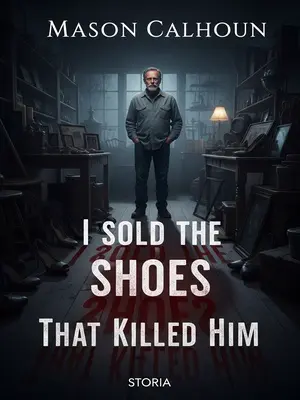Chapter 2: The Price of Belonging
I was shoved into the back of a town car and driven away. Only when we arrived at the Whitmore estate did I learn that the former heir was dead and Julian had been named the new head of the family.
The ride was silent, the windows tinted so dark I couldn’t see out. When the gates finally opened, I caught a glimpse of the old mansion—white columns, sprawling lawns, now strangely empty. The air felt heavy, like a storm about to break.
The estate was quiet, nothing like the lively bustle it used to be. The staff were all on edge, like they’d lost their tongues.
No one met my eyes. The halls echoed with every footstep, the only sounds the soft whir of the grandfather clock and the distant clink of silverware. It felt less like a home, more like a mausoleum.
A maid named April whispered to me, “Mr. Whitmore hates noise. Once, some maids were goofing around and bumped into him—they were fired on the spot—he made everyone watch.”
April was young, maybe a year or two older than me, with nervous hands and a habit of glancing over her shoulder. “Just keep your head down,” she whispered. “Don’t give him a reason to notice you.”
That night, after dinner and a shower, I was about to turn off the lights when Julian came in, and the room seemed to go cold. He didn’t waste words. My old bruises hadn’t healed before new ones bloomed. By dawn, I was burning with fever.
I shivered under the heavy blankets, sweat soaking my hair. Julian barely looked at me as he left, the door clicking shut behind him. The room felt colder than ever.
Half-conscious, I saw him staring at me impatiently, his face cold. He didn’t say a word.
His eyes were like ice—unreadable, distant. I tried to ask for water, but my voice came out a croak. He didn’t move.
I was sick for more than half a month. He never visited, not even once.
April brought me medicine and cool cloths, her touch gentle. She told me stories to pass the time—about her hometown in Alabama, her dreams of college. I clung to those stories like a lifeline.
April said I was his favorite—he hadn’t visited any other woman’s room.
She winked as she changed my sheets. “You’re special,” she said. “He doesn’t bother with anyone else.”
When I recovered, I brought pastries from the kitchen to his study, handed the pastry box to a staff member, and quietly left. When you rely on others for everything, you have to be accommodating—learn to read the room.
I picked out the best ones—pecan tarts and lemon bars, just like my mom used to make. I left a little note tucked inside: Thank you. I didn’t expect a reply.
Sure enough, that night, Julian came to my room again. I was cracking pistachios and reading a romance novel. I quickly greeted him. This time, I’d prepared in advance, and he was much gentler—didn’t hurt me as much.
I wore my softest pajamas, my hair brushed smooth. The room was warm, the lights low. He seemed almost human that night, his touch less harsh. I wondered if he’d read my note.
From then on, I became his exclusive favorite in the Whitmore estate. He showered me with gold, silver, and jewels—lavished me with gifts I never could have imagined.
Boxes appeared on my dresser—diamond earrings, gold bracelets, silk scarves in every color. April helped me try them on, giggling like we were at a sleepover. For a while, it almost felt normal.
He seemed to like me a lot. I didn’t know why. He didn’t care for music or dance, didn’t like noise. All my musical and dancing skills were useless; only my bedroom skills were put to use.
I tried playing the piano for him once, but he stopped me after a few bars. “Quiet,” he said. So I learned to fill the silence with softer things—gentle touches, whispered words, the kind of comfort that didn’t make a sound.
In the end, I realized the Lounge had trained me well.
The manager had been right: I knew how to read a room, how to anticipate what he wanted before he asked. It was a strange kind of power, but it kept me safe.
After several months together, I’d figured out his temperament—just keep quiet, and all would be well. At first, he’d come every few days; later, he came often; eventually, he was there every single day. His stamina was unbelievable. I started taking vitamins, but he never seemed to tire.
April teased me about it, slipping bottles of B12 and magnesium into my nightstand. “You’ll need these,” she whispered, grinning. I laughed, but some nights I cried myself to sleep, too tired to move.
Sometimes, he’d dine with me. When he saw me drinking a protein smoothie, he frowned. “Why are you drinking that?”
He always noticed the smallest things. The smoothie was thick and sweet, full of protein powder and berries. I shrugged, embarrassed.
I explained quietly, “My lower back and hips are sore. The family doctor said I should take supplements.”
He said nothing more, just ate quietly.
He picked at his steak, eyes fixed on his plate. The silence stretched between us, heavy as lead.
That night, he was more restrained, but he didn’t seem sleepy. He played with my hair as I lay meekly in his arms.
His fingers traced lazy circles on my scalp, almost tender. I closed my eyes and pretended, just for a moment, that we were a real couple, safe and ordinary.
He asked, “Did you suffer much in the club?”
His voice was softer than usual, almost curious. I hesitated, not sure what answer he wanted.
I shook my head. “I behaved myself. The manager and the others didn’t make things hard for me.”
He frowned again. My heart skipped a beat. Did he want to see me suffer?
He pinched my chin, studied my eyes, then gave a cold laugh. “Your father was once the smartest man in the room—top of his class, later the family’s legal counsel, a renowned academic—how did he end up with a daughter like you, with no backbone at all?”
His words stung, but I forced a smile. “Maybe I’m just good at surviving,” I whispered.
I felt embarrassed, so I wrapped my arms around his neck and said coyly, “Julian, I don’t care about backbone or whatever. I just adore you and want to stay by your side.”
I pressed my lips to his, letting him feel the truth in my touch. He liked it when I took the lead, so I did, hoping it would keep him close for another night.
He let me lead for a breath, then took control.
The air grew thick with longing. I lost myself in the moment, forgetting everything else.
Behind the thin curtains, spring was in full bloom.
The scent of lilacs drifted in from the garden. Somewhere, a mockingbird sang. For a moment, the world was soft and new again.
Julian had to go to New Orleans on a corruption case, the head butler told me. With no wife or official partner—and my father still alive as the family’s former legal counsel—he treated me almost like the lady of the house, despite where I’d come from.
Mr. Collins, the butler, was a stiff, formal man with iron-gray hair. He addressed me as “Miss Langley” and made sure I had everything I needed. The staff followed his lead, treating me with a wary respect.
I kept cracking pistachios and said, “Looks like I’ll need you to keep things running, Mr. Collins.”
He nodded, a hint of a smile on his lips. “Of course, ma’am.”
I thought, finally, I could get some rest. In six months here, I’d spent almost as many nights with him as I had clients at Scarlet Velvet.
I dreamed of sleeping in, of reading all day in the sunroom, of long walks in the garden with no one watching. It felt almost within reach.













